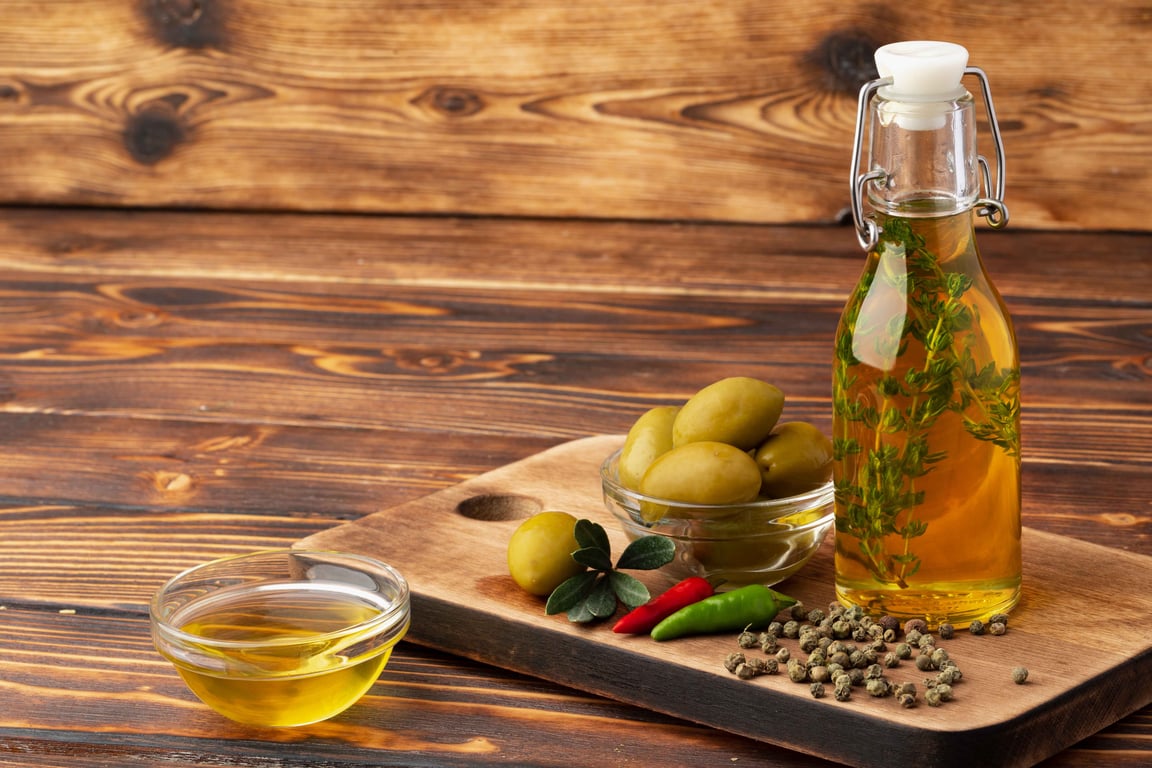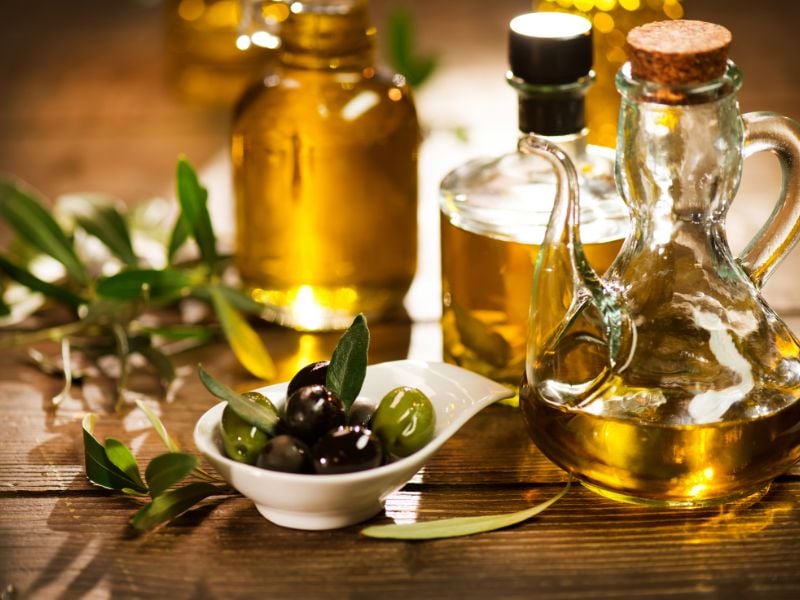How Long Does Infused Olive Oil Last?

Infused olive oil, a cornerstone of the culinary world, is celebrated for its rich flavor profiles and versatility in the kitchen. By incorporating herbs, spices, fruits, or vegetables, olive oil is transformed into a powerhouse of taste and aroma, enhancing dishes in extraordinary ways. Nevertheless, the primary question often asked by both culinary enthusiasts and novices is: "How long does infused olive oil last?" To shed light on this topic, we'll delve into the shelf life of infused olive oil, along with some handy tips to ensure maximum freshness and taste.
Shelf Life of Infused Olive Oil
Unlike pure olive oil, which can last up to two years if stored correctly, infused olive oil has a significantly reduced shelf life due to the perishable ingredients used for infusion. On average, homemade infused olive oil should ideally be used within one to two weeks if refrigerated, although some may last a bit longer, up to a month. Commercially prepared infused olive oils usually last longer due to the use of specific preservation processes, potentially extending the shelf life to a few months or even a year.
The short lifespan of homemade infused olive oil is primarily due to the risk of botulism, a severe form of food poisoning. Fresh ingredients such as garlic, herbs, and vegetables can contain spores of Clostridium botulinum, the bacterium causing botulism, which can thrive in low-oxygen environments like a bottle of oil.
How to Increase the Shelf Life of Infused Olive Oil
Here are some steps you can take to help extend the life of your infused olive oil:
1. Use Dried Ingredients: Dried herbs and spices are less likely to harbor bacteria, therefore reducing the risk of botulism. They can also extend the shelf life of your oil infusion by several months, provided they're properly stored.
2. Acidification: Adding an acid like vinegar or citric acid to ingredients before infusing them in oil can reduce the risk of bacterial growth. Note that this may affect the taste of your infusion.
3. Proper Storage: Infused olive oil should be stored in a cool, dark place to maintain its freshness. Heat, light, and oxygen exposure can significantly degrade the oil and hasten spoilage.
4. Refrigeration: While pure olive oil doesn't require refrigeration, infused olive oil does. Cold temperatures can help slow down the rate of bacterial growth.
5. Use Quality Olive Oil: Start with a high-quality extra-virgin olive oil. It has a longer shelf life and is loaded with antioxidants, which can help to preserve the infusion.
Recognizing Spoiled Infused Olive Oil
Knowing when your infused olive oil has gone bad is crucial. Indications include a rancid or off smell, a change in color, or a greasy or thickened texture. The presence of mold or any other foreign particles is a clear sign that the oil has spoiled and should not be consumed.
While infused olive oil provides a fantastic opportunity to experiment with flavors, it's essential to be mindful of its relatively short shelf life. Proper understanding of infused oil storage and signs of spoilage is crucial for safety. While homemade infusions provide the pleasure of customization, commercially prepared infused oils offer convenience and a longer shelf life due to industrial preservation techniques. Either way, infused olive oils are a delightful addition to any kitchen.
Frequently Asked Questions
Q: What is the difference in shelf life between homemade and commercial infused olive oils?
A: Commercial infused olive oils typically have a longer shelf life due to processes like pasteurization, the addition of preservatives, acidification, or sterilization. In contrast, homemade infused oils are generally more perishable, as they often contain fresh ingredients, undergo less processing, and lack preservatives.
Q: How should I store infused olive oil to maximize freshness?
A: To keep infused olive oil fresh, store it in a cool, dark location. Use opaque or dark glass bottles to protect it from light. It's important to minimize air exposure, so make sure the cap is tight. If your infusion includes fresh ingredients, refrigerating the oil is advisable. Lastly, avoid heat and light, as these factors can accelerate spoilage.
Q: What storage practices help extend the life of infused olive oil?
A: To maximize the freshness of infused olive oil, consider these practices:
- Opt for dried herbs and spices instead of fresh ones.
- Acidify the ingredients (using vinegar or citric acid) before infusion.
- Store the oil in a cool, dark place and ideally refrigerate it.
- Use high-quality olive oil for the best results.
Q: Is there a health risk from using spoiled infused olive oil?
A: Yes, using spoiled infused olive oil can pose health risks, particularly the risk of botulism, a severe foodborne illness. This risk is especially prominent in homemade infusions that include fresh ingredients. The bacteria Clostridium botulinum can thrive in low-oxygen environments, such as those found in improperly stored oils.
Q: Can I use fresh herbs or garlic, or are dried ingredients safer?
A: While fresh herbs and garlic provide a more robust flavor, they introduce moisture, which can lead to bacterial growth. On the other hand, dried ingredients are generally safer, as they have a significantly lower risk of contamination and allow for extended storage.


 Fax : 1-973-799-0901
Fax : 1-973-799-0901 Call us now: +1 408-464-9048
Call us now: +1 408-464-9048


